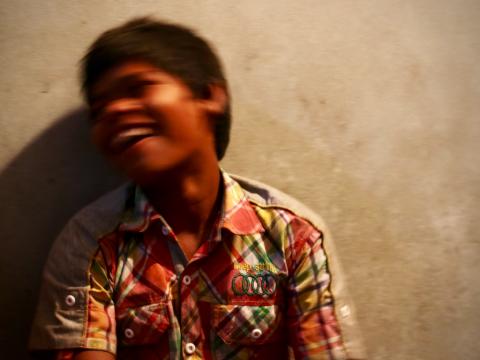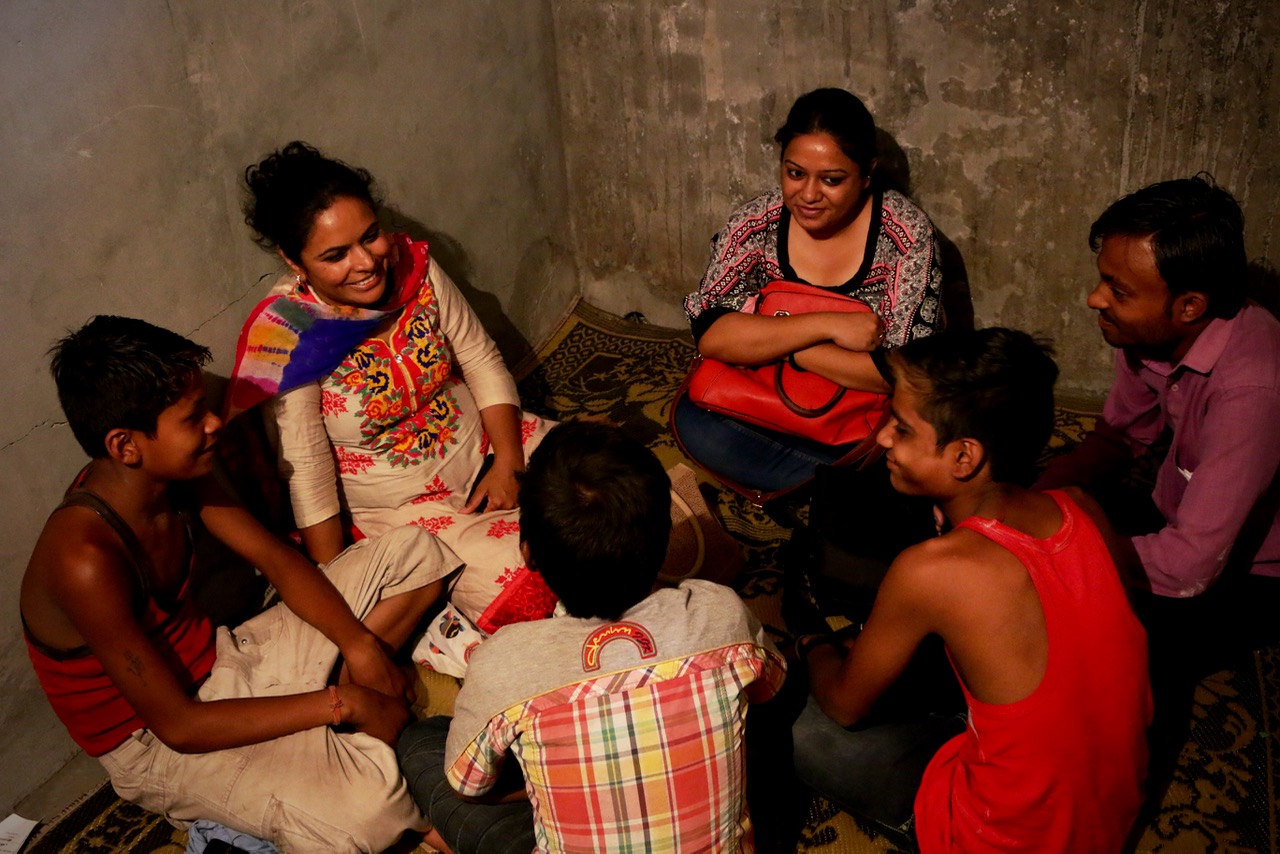Understanding a high

It's 10am and Kapil* has just woken up. The streets in Central Delhi buzz with activity.
I see men and women leave homes for their day of rag picking while the children left about; some working in shops, some lying down, and very few going to school. I smell the dirt and notice dust fill the environment.
I greet Kapil, 12, as I walk further down the extremely narrow lanes, which resemble a complicated maze. It's easy for anyone to get lost here, especially a child.
Kapil's head buzzes, last night's fix made his head spin and put him to sleep. He liked that feeling. That's what he tells me.
"When I smoke ganja (weed), I feel on top of the world!” he says, his eyes looking glazed.
I'm not sure whether to sympathize, be angry or find comfort at his induced state of happiness.
I look at him with mixed feelings. I'm not sure whether to sympathize, be angry or find comfort at his induced state of happiness. Many children in this area are victims of this, in my opinion, venomous habit. The area is a haunt for drug dealers leaving children exposed to such a way of life. Their acute state of poverty makes them all the more vulnerable.
"It gives me the energy to do work. I work and I also consume drugs. So what if I do both?” he says with a smile.
Frankly, I don't know how to react to that. It is true that the almighty has given each of us the free will to choose whichever path we'd like. The idea here isn't to judge or label these kids, but to just understand why they choose to take this route.
From talking to them I understand that many children here perceive drugs like a toy; an exciting toy which gives them the thrill to carry on with their days.
They feel they have nothing to lose by experimenting; it's what they do for fun.
Kapil meets with his friends everyday and they spend their time doing drugs adding to the plight of his mother.
"He has spent almost a lakh (almost $1,500 USD) on drugs. It's all of our family income. He just doesn't want to go to school. My older son also ran away. I don't know what happened to him. I work so hard all day. My husband is also no more. What do I do with this boy!” says Kapil's mother as she vents her agony.
The problem starts when addiction steps in; it takes them to another world; away from their reality, which is generally too difficult for them to digest. Sadly, this alternate world is a mirage, a huge trick that traps them.
We move on to a non-formal education centre set up by World Vision. Kapil along with two of his friends are inside this tiny room with a blackboard.
"These children need a lot of love. They need to be told that they are cared for; they need people who will listen to them and relate to them. They need people who can guide them. Most often their family situations are terrible,” says Sharon, a World Vision staff member.
Identifying this neighbourhood as a focus area, World Vision as part of their Delhi Child Restoration Project, began non-formal education centres.
Currently, there are two centres in this area with 40 children attending them, of which 35 have been enrolled in school. Basic subjects are taught to children apart from constant counselling.
I meet Kapil's friend Roshan*. He is about the same height as Kapil. However, unlike Kapil, his eyes twinkle and he looks focused. Roshan, 14, attends the centre regularly.
"I used to drugs a lot before when I was working at the chaai dukaan (tea shop). After going to school I have stopped. I didn't really want to do it anymore. I like studying,” says Roshan.
"It indeed is a lot of effort to first get to know them and make them trust you. It's this challenge that motivates me at work every day!” says a zestful Sharon.
Children everywhere are the same. Perhaps their circumstances don them with different looking shells but their core remains the same.
I have come to understand the beauty of this ministry I'm in; the joy and challenge in carefully unwrapping every child's exterior and helping them identify with their core. I believe once you get there, the process of transformation begins.
"I miss my brother. He was much older than me. I don't know where he is now. He ran away from home, I miss my brother a lot, he was my friend," says Kapil, finally opening up as he bursts into tears.
*name changed to protect identity
